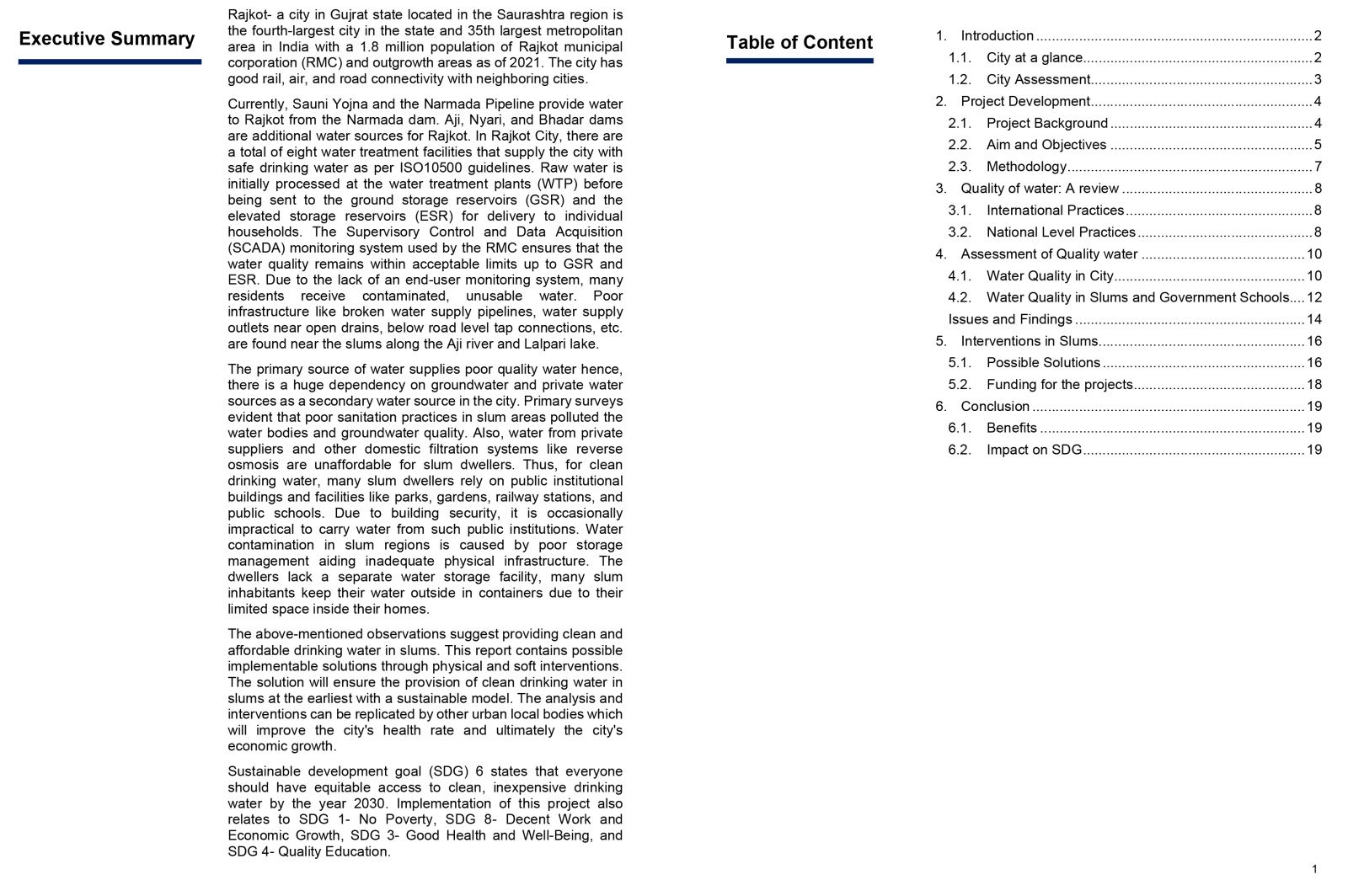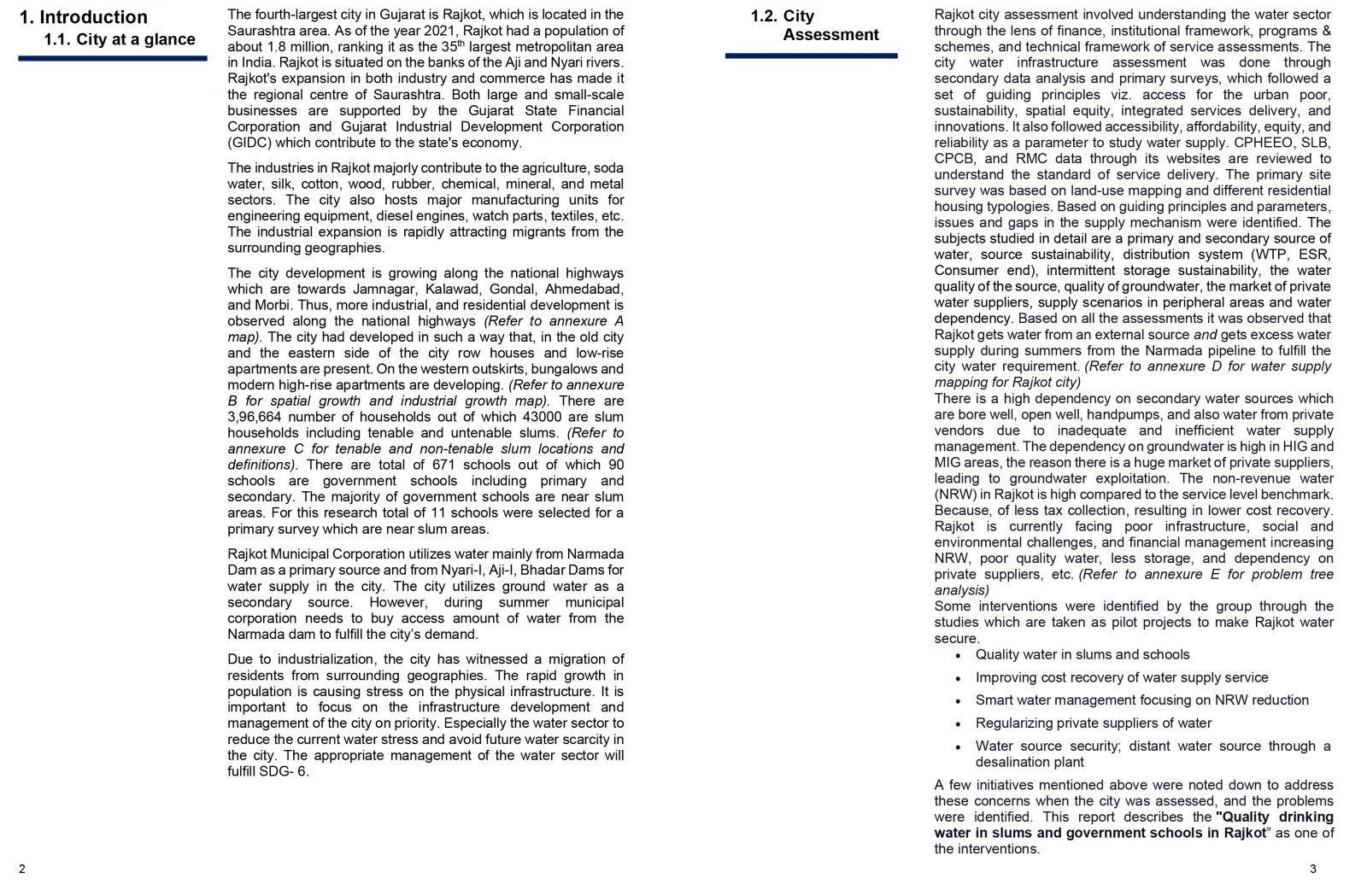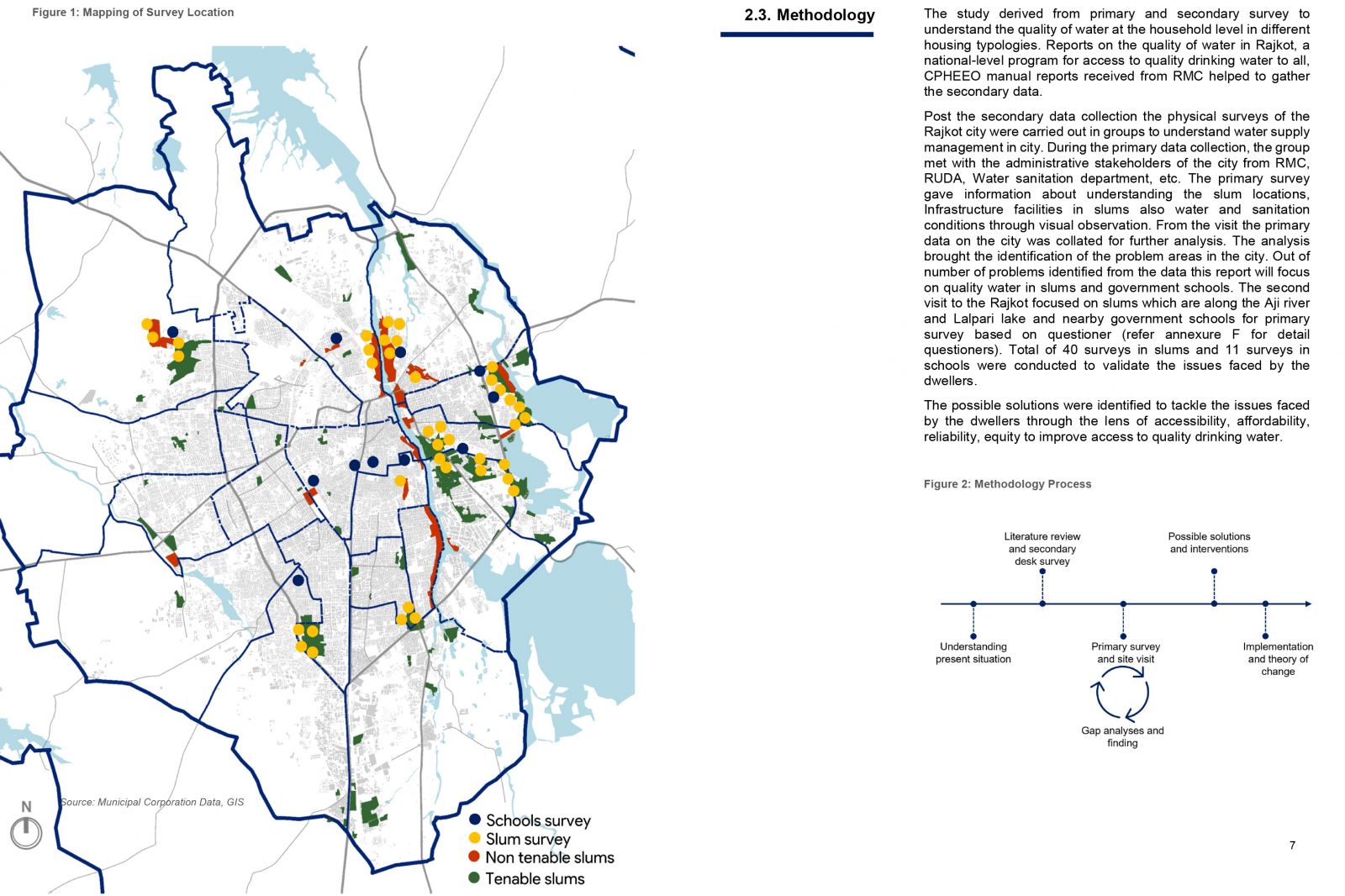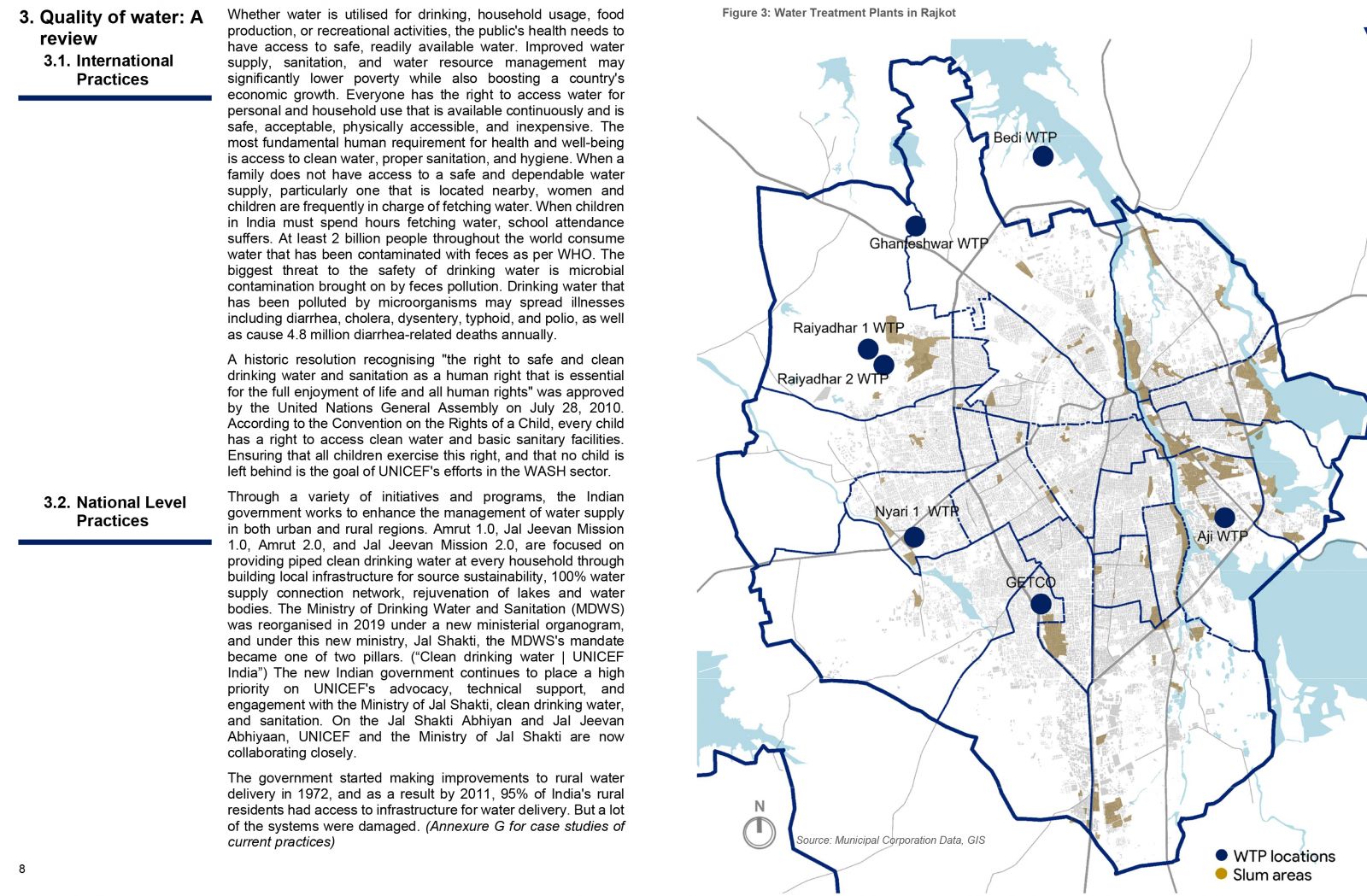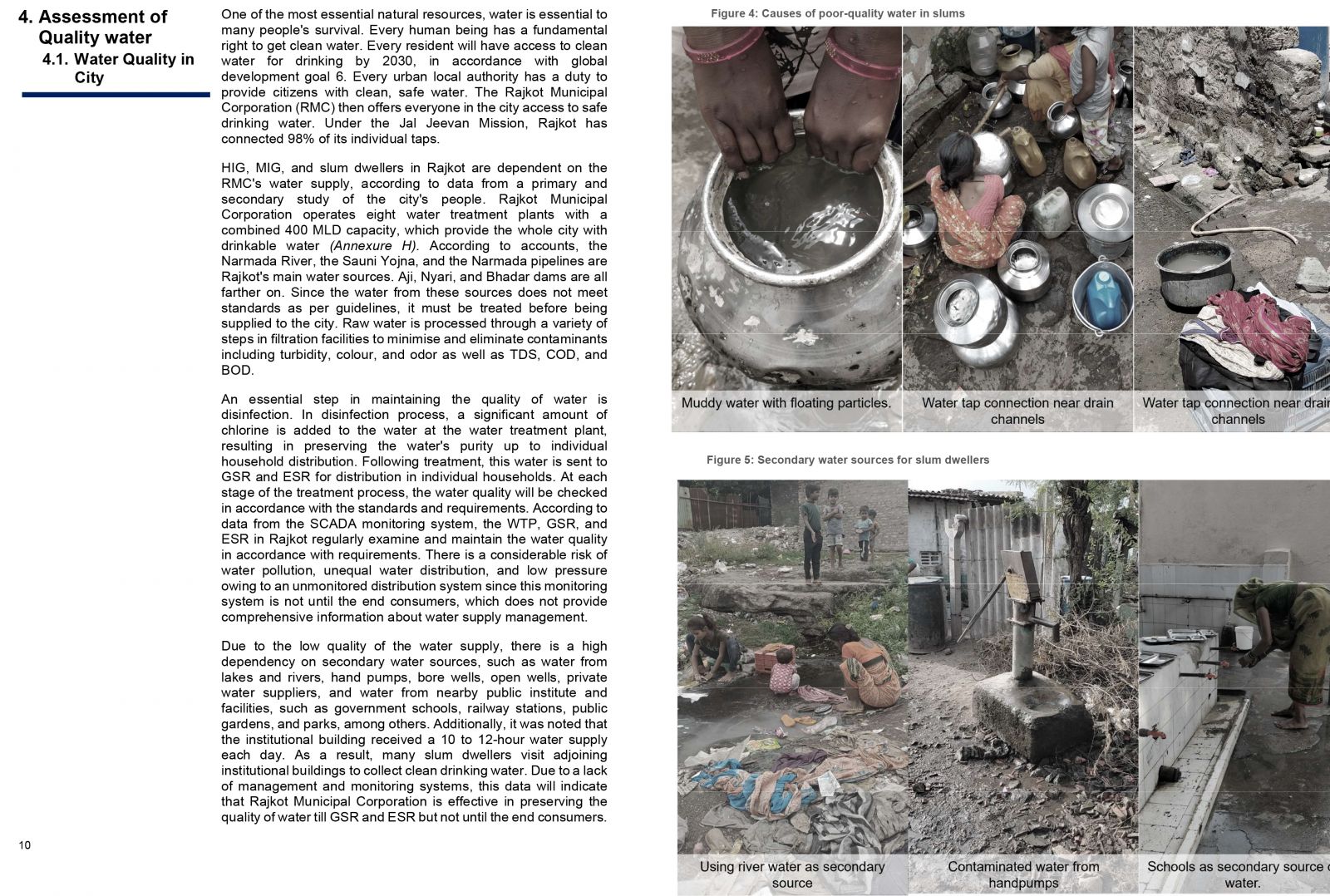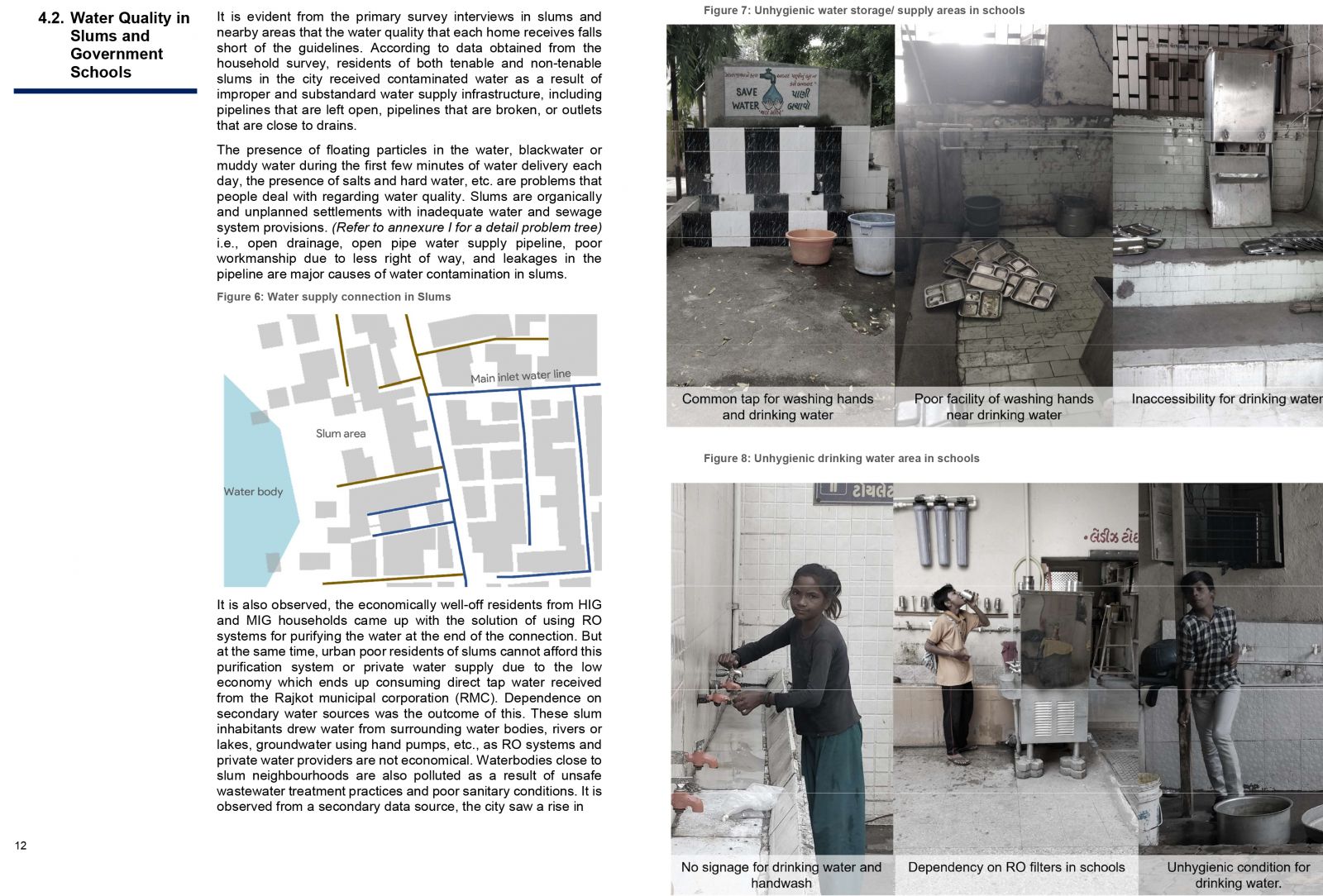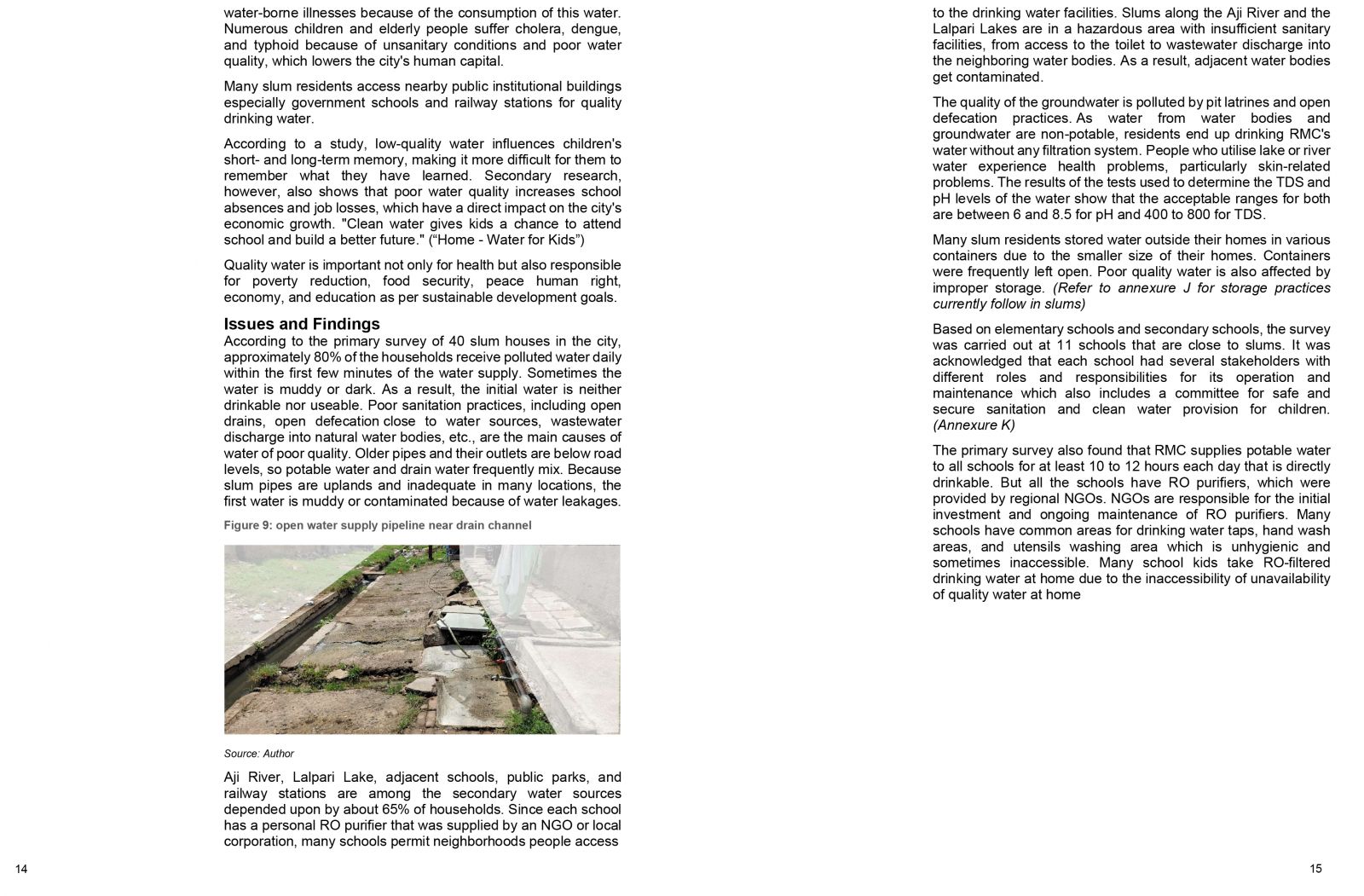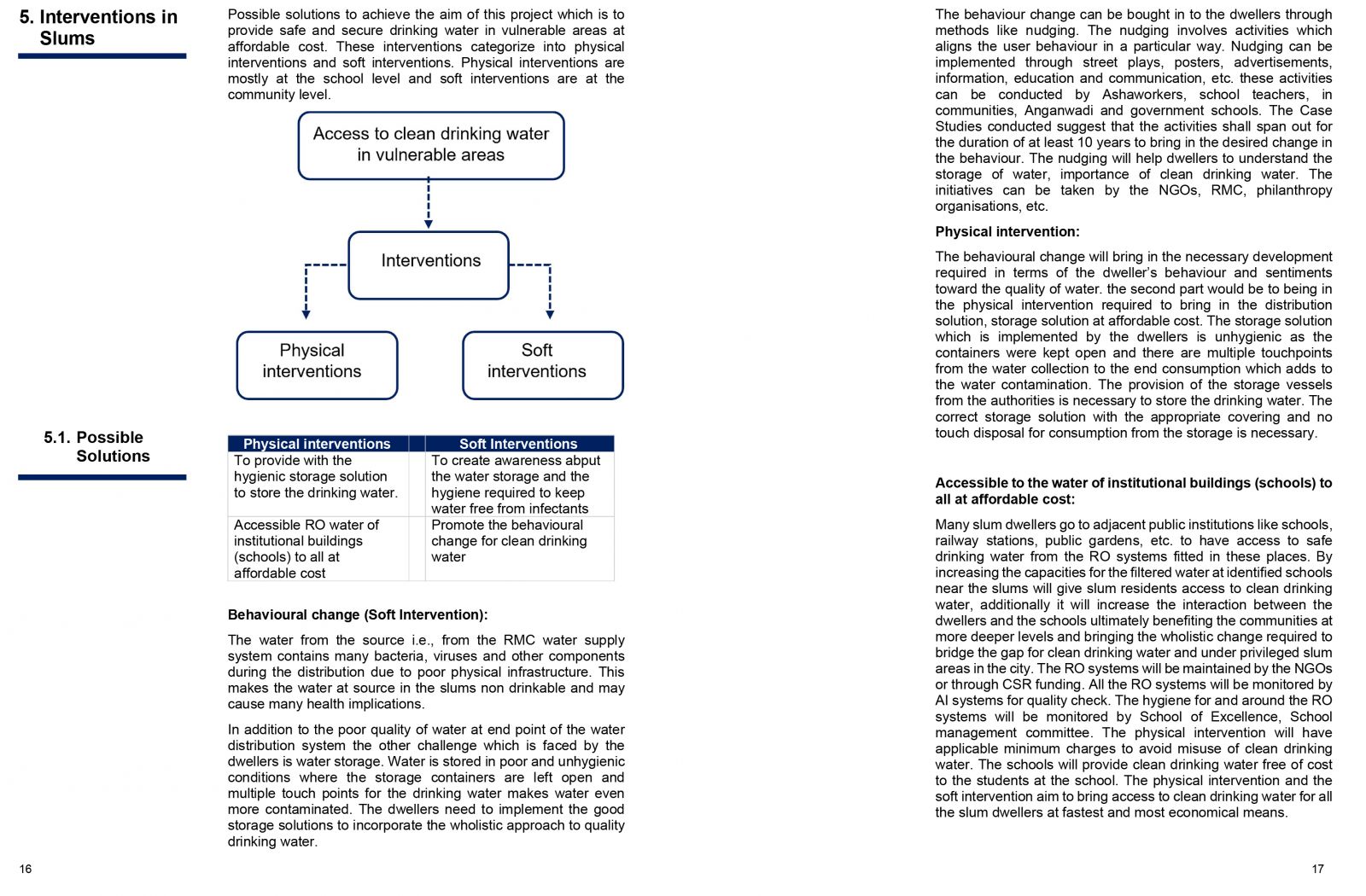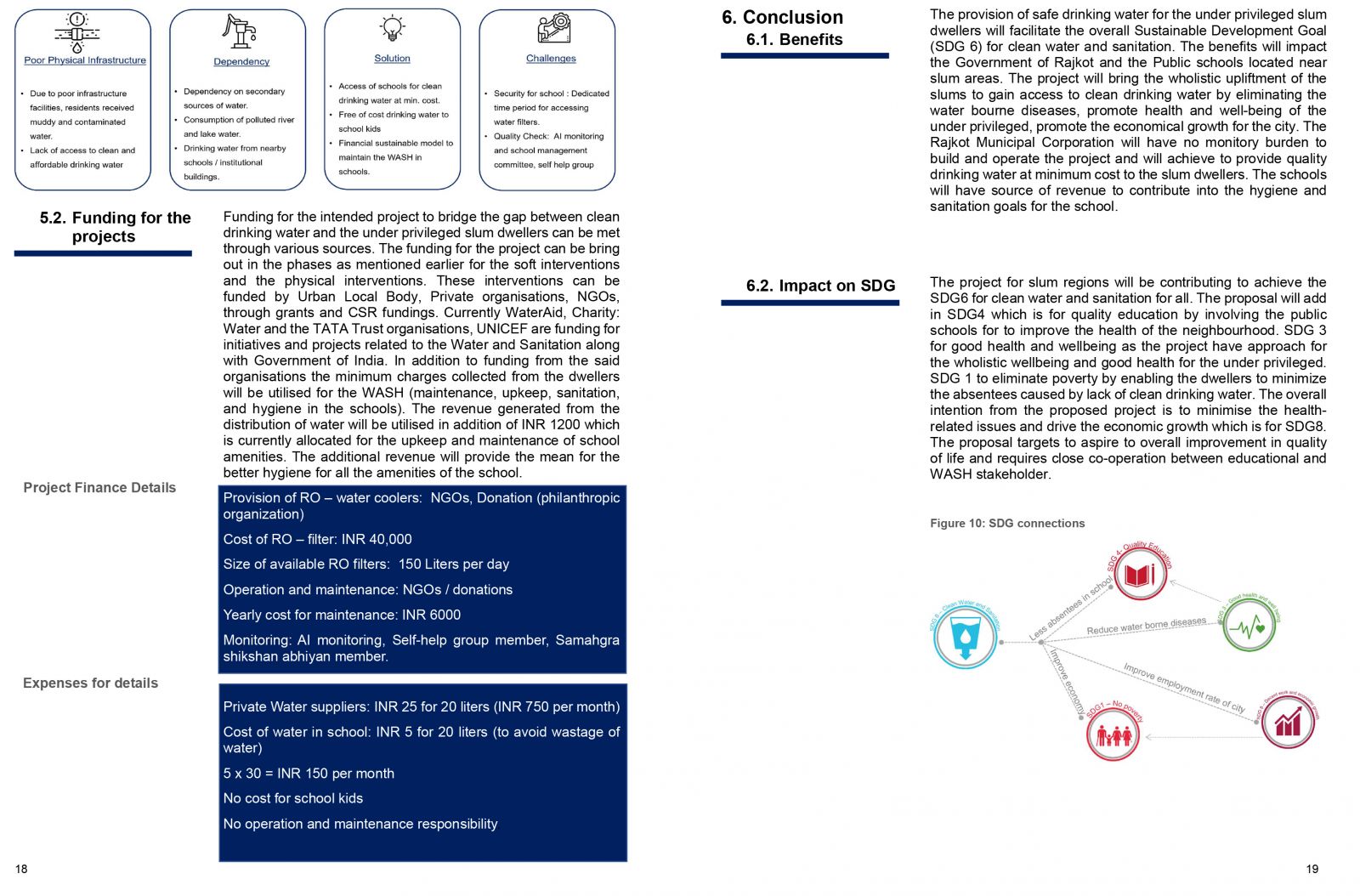Your browser is out-of-date!
For a richer surfing experience on our website, please update your browser. Update my browser now!
For a richer surfing experience on our website, please update your browser. Update my browser now!
The study shows, there is an adequate water supply in the city. Due to poor infrastructure, lack of a monitoring system and unplanned settlements; residents receive inefficient and poor-quality water. There is a high dependence on groundwater and water from private suppliers in the city as a secondary source of water. Analysis through primary and secondary data summarize, "Rajkot is not under water scarcity but underwater stress." The quality of water is directly associated with the quality of living. According to the sustainable development goal SDG -6, water is crucial for more than just health; it also contributes to the city’s economic growth, education, human rights, food security, and poverty reduction. The research project intends to provide slum residents with accessible clean drinking water as readily as possible at an affordable and easy-to-implement strategy.
View Additional Work